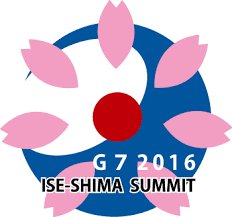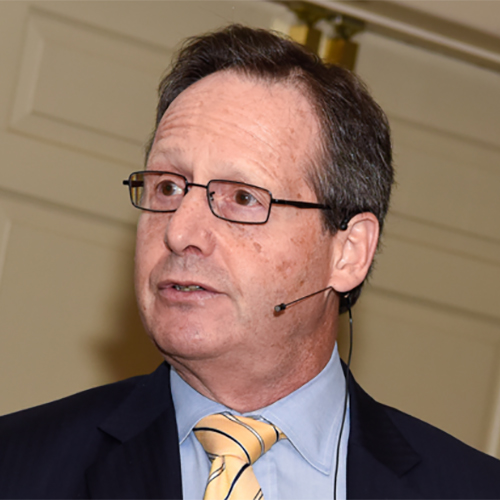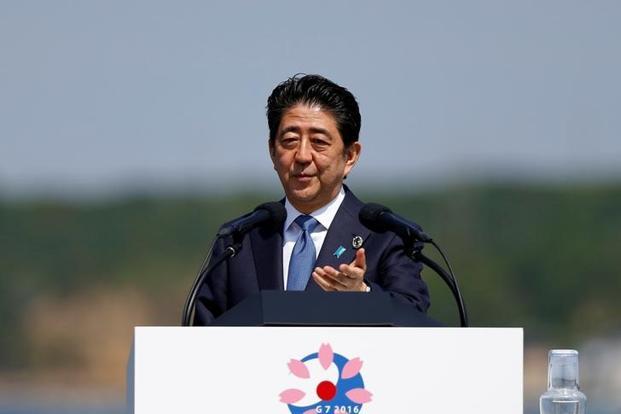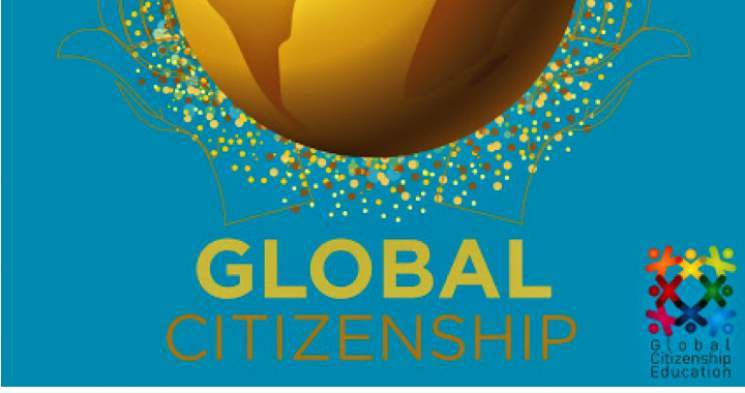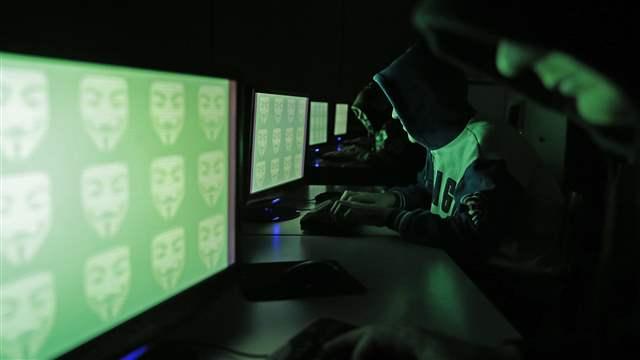
by Admin | Jun 11, 2016 | Initiative
(June 6th, 2016) International security for the last 30 years has been characterized by security deficits, which I define as a government’s inability to meet its national security obligations without external support. (1) In the terrestrial world, intra-state, transnational, and regional actors challenge governments’ ability to provide a secure environment for their citizens.


This means Iraq struggles against ISIS, the United States struggles against transnational organized crime, and Ukraine struggles against Russia. While these conflicts are isolated in particular places of the world, the effect of security deficits are felt throughout entire regions. G7 countries have been at the forefront of peace efforts to alleviate problems created by international crises like these. They also provide development and security assistance to weakened governments in an effort to improve stability, strengthen institutions, and protect vulnerable populations. The rationale to assist countries in overcoming their security deficits has been based on the assumption that instability breeds chaos, which would make it more likely that the international community would face pressure to intervene in the future, often at a higher cost in lives and resources.The same is true in the cyber world. Transnational organized criminal groups harness the power of the internet to steal identities and conduct financial crimes; terrorist organizations use cyberspace to recruit fighters and promote their destructive deeds; and countries employ cyber tools for espionage while laying the ground work for military operations in cyberspace. Cyber challenges like these cut across all dimensions where we live and are simultaneously political, economic, and social. More than ever, citizens, regardless of nationality, are exposed to risks created by cyber insecurity. Reinforced by intelligence assessments, polling in the United States places cyber insecurity as a pressing national security challenge.
With persistent vulnerabilities in the software we use and the relative impunity with which states, groups, and individuals operate in cyberspace, we will continue to experience data breaches leading to fraud and intellectual property theft undercutting innovation. Governments, organizations, companies, and individuals can be vermatched by malicious actors. Cybersecurity deficits undercut the benefits citizens derive from the technology we enjoy, and directly affect individuals in ways that past conflicts in distant parts of the world have not affected G7 countries.
At the same time, disclosures about governments’ roles in cyberspace undermine trust and challenge credibility. Information technology companies are pressured to enable governments special access to their products, all the while attempting to comply with different national regulations. Citizens are stuck in the middle feeling that the promises of an open, transparent, and secure cyberspace look bleak.
At the national security level, governments are concerned with Cybergeddon scenarios against critical public infrastructure disabling electricity, telecommunications, and financial services. While Cybergeddon is not inevitable (and represents a wake-up call about cyber insecurity rather than an existential threat), critical sectors have huge incentives to secure their infrastructure. However, as we have seen in other areas, security becomes a cat and mouse game where malicious actors improve rapidly, often outpacing governments abilities to adapt or defend against emerging threats.
This shared insecurity need not be paralyzing, but can be a basis for international cooperation in which G7 governments have important roles to play. Building on the norms that my colleague John Savage outlined, the next steps to improve cybersecurity include:
- Convening sub-regional summits to outline the scope of cybersecurity challenges andimprove multilateral efforts to promulgate norms.
- Establishing information sharing centers where governments can share threat information, coordinate cybersecurity policies, and implement best practices forgovernments, organizations, companies, and individuals.
- Assisting governments in developing countries to strengthen their government networks,improve protection of critical public infrastructure, and educate citizens to raise their security posture improving human capital. There are no borders in cyberspace, and our networks are only as strong as the weakest access point. By promoting cybersecurity norms, enabling cooperation among G7 countries, and assisting developing countries, we all become more secure from actors that place individuals at the forefront of the cybersecurity threat. When thinking about improving security in cyberspace, we should look at how international partners contribute to security in the terrestrial space through cooperative military operations, peacekeeping, and international assistance. These are important norms to replicate in cyberspace as there is a common responsibility to guarantee our citizens a minimal level of cybersecurity.
Since cyberspace is a reflection of G7 countries’ values and corporations in G7 countries dominate the information technology space, G7 countries are well placed to lead the world on establishing cyber norms to improve cybersecurity.
Derek S. Reveron (2) May 9, 2016
U.S. Naval War College and Belfer Center for Science and International Affairs
(1) Derek S. Reveron, Exporting Security: International Engagement, Security Cooperation, and the Changing Face of the US Military, Second Edition (Washington, DC: Georgetown University Press, 2016).
(2) The views expressed here are the author’s alone and do not represent the official position of the Department of the Navy, the Department of Defense or the U.S. government.
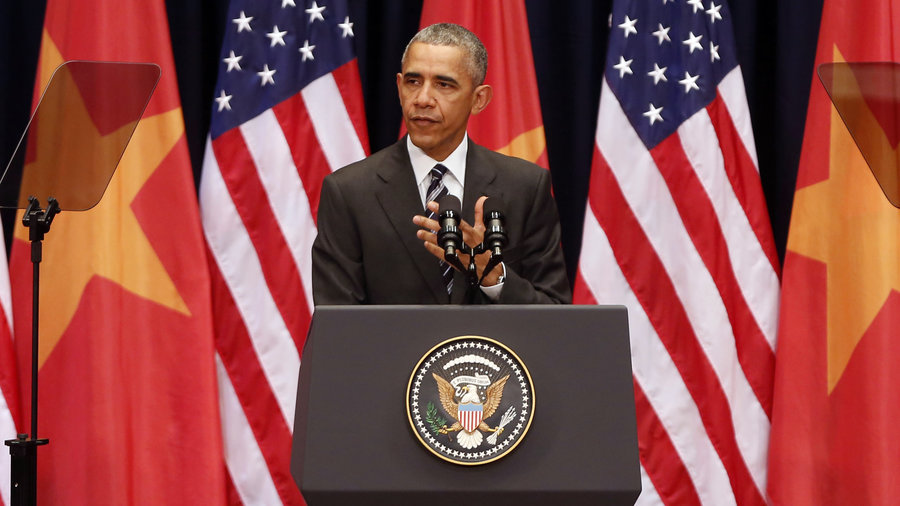
by Admin | May 30, 2016 | Initiative
(May 30th, 2016) Obama delivers remarks at the National Convention Center in Hanoi, Vietnam. Mr Barack Obama’s speech showed how he is deeply understanding Vietnam, more than many Vietnamese. He knows all about Vietnamese elites: Hai Ba Trung, Ly Thuong Kiet, Great Poet Nguyen Du, Phan Chu Trinh, Zen Master Thich Nhat Hanh, and above all, is the love of peace and freedom of Vietnamese.
PRESIDENT OBAMA: Xin chào! (Applause.) Xin chào Vietnam! (Applause.) Thank you. Thank you so much. To the government and the people of Vietnam, thank you for this very warm welcome and the hospitality that you have shown to me on this visit. And thank all of you for being here today. (Applause.) We have Vietnamese from across this great country, including so many young people who represent the dynamism, and the talent and the hope of Vietnam.

On this visit, my heart has been touched by the kindness for which the Vietnamese people are known. In the many people who have been lining the streets, smiling and waving, I feel the friendship between our peoples. Last night, I visited the Old Quarter here in Hanoi and enjoyed some outstanding Vietnamese food. I tried some Bún Chả. (Applause.) Drank some bia Ha Noi. But I have to say, the busy streets of this city, I’ve never seen so many motorbikes in my life. (Laughter.) So I haven’t had to try to cross the street so far, but maybe when I come back and visit you can tell me how.
I am not the first American President to come to Vietnam in recent times. But I am the first, like so many of you, who came of age after the war between our countries. When the last U.S. forces left Vietnam, I was just 13 years old. So my first exposure to Vietnam and the Vietnamese people came when I was growing up in Hawaii, with its proud Vietnamese American community there.
At the same time, many people in this country are much younger than me. Like my two daughters, many of you have lived your whole lives knowing only one thing — and that is peace and normalized relations between Vietnam and the United States. So I come here mindful of the past, mindful of our difficult history, but focused on the future — the prosperity, security and human dignity that we can advance together.
I also come here with a deep respect for Vietnam’s ancient heritage. For millennia, farmers have tended these lands — a history revealed in the Dong Son drums. At this bend in the river, Hanoi has endured for more than a thousand years. The world came to treasure Vietnamese silks and paintings, and a great Temple of Literature stands as a testament to your pursuit of knowledge. And yet, over the centuries, your fate was too often dictated by others. Your beloved land was not always your own. But like bamboo, the unbroken spirit of the Vietnamese people was captured by Ly Thuong Kiet — “the Southern emperor rules the Southern land. Our destiny is writ in Heaven’s Book.”
Today, we also remember the longer history between Vietnamese and Americans that is too often overlooked. More than 200 years ago, when our Founding Father, Thomas Jefferson, sought rice for his farm, he looked to the rice of Vietnam, which he said had “the reputation of being whitest to the eye, best flavored to the taste, and most productive.” Soon after, American trade ships arrived in your ports seeking commerce.
During the Second World War, Americans came here to support your struggle against occupation. When American pilots were shot down, the Vietnamese people helped rescue them. And on the day that Vietnam declared its independence, crowds took to the streets of this city, and Ho Chi Minh evoked the American Declaration of Independence. He said, “All people are created equal. The Creator has endowed them with inviolable rights. Among these rights are the right to life, the right to liberty, and the right to the pursuit of happiness.”
In another time, the profession of these shared ideals and our common story of throwing off colonialism might have brought us closer together sooner. But instead, Cold War rivalries and fears of communism pulled us into conflict. Like other conflicts throughout human history, we learned once more a bitter truth — that war, no matter what our intentions may be, brings suffering and tragedy.
At your war memorial not far from here, and with family altars across this country, you remember some 3 million Vietnamese, soldiers and civilians, on both sides, who lost their lives. At our memorial wall in Washington, we can touch the names of 58,315 Americans who gave their lives in the conflict. In both our countries, our veterans and families of the fallen still ache for the friends and loved ones that they lost. Just as we learned in America that, even if we disagree about a war, we must always honor those who serve and welcome them home with the respect they deserve, we can join together today, Vietnamese and Americans, and acknowledge the pain and the sacrifices on both sides.
More recently, over the past two decades, Vietnam has achieved enormous progress, and today the world can see the strides that you have made. With economic reforms and trade agreements, including with the United States, you have entered the global economy, selling your goods around the world. More foreign investment is coming in. And with one of the fastest-growing economies in Asia, Vietnam has moved up to become a middle-income nation.
We see Vietnam’s progress in the skyscrapers and high-rises of Hanoi and Ho Chi Minh City, and new shopping malls and urban centers. We see it in the satellites Vietnam puts into space and a new generation that is online, launching startups and running new ventures. We see it in the tens of millions of Vietnamese connected on Facebook and Instagram. And you’re not just posting selfies — although I hear you do that a lot — (laughter) — and so far, there have been a number of people who have already asked me for selfies. You’re also raising your voices for causes that you care about, like saving the old trees of Hanoi.
So all this dynamism has delivered real progress in people’s lives. Here in Vietnam, you’ve dramatically reduced extreme poverty, you’ve boosted family incomes and lifted millions into a fast-growing middle class. Hunger, disease, child and maternal mortality are all down. The number of people with clean drinking water and electricity, the number of boys and girls in school, and your literacy rate — these are all up. This is extraordinary progress. This is what you have been able to achieve in a very short time.
And as Vietnam has transformed, so has the relationship between our two nations. We learned a lesson taught by the venerable Thich Nhat Hanh, who said, “In true dialogue, both sides are willing to change.” In this way, the very war that had divided us became a source for healing. It allowed us to account for the missing and finally bring them home. It allowed us to help remove landmines and unexploded bombs, because no child should ever lose a leg just playing outside. Even as we continue to assist Vietnamese with disabilities, including children, we are also continuing to help remove Agent Orange — dioxin — so that Vietnam can reclaim more of your land. We’re proud of our work together in Danang, and we look forward to supporting your efforts in Bien Hoa.
Let’s also not forget that the reconciliation between our countries was led by our veterans who once faced each other in battle. Think of Senator John McCain, who was held for years here as a prisoner of war, meeting General Giap, who said our countries should not be enemies but friends. Think of all the veterans, Vietnamese and American, who have helped us heal and build new ties. Few have done more in this regard over the years than former Navy lieutenant, and now Secretary of State of the United States, John Kerry, who is here today. And on behalf of all of us, John, we thank you for your extraordinary effort. (Applause.)
Because our veterans showed us the way, because warriors had the courage to pursue peace, our peoples are now closer than ever before. Our trade has surged. Our students and scholars learn together. We welcome more Vietnamese students to America than from any other country in Southeast Asia. And every year, you welcome more and more American tourists, including young Americans with their backpacks, to Hanoi’s 36 Streets and the shops of Hoi An, and the imperial city of Hue. As Vietnamese and Americans, we can all relate to those words written by Van Cao — “From now, we know each other’s homeland; from now, we learn to feel for each other.”
As President, I’ve built on this progress. With our new Comprehensive Partnership, our governments are working more closely together than ever before. And with this visit, we’ve put our relationship on a firmer footing for decades to come. In a sense, the long story between our two nations that began with Thomas Jefferson more than two centuries ago has now come full circle. It has taken many years and required great effort. But now we can say something that was once unimaginable: Today, Vietnam and the United States are partners.
And I believe our experience holds lessons for the world. At a time when many conflicts seem intractable, seem as if they will never end, we have shown that hearts can change and that a different future is possible when we refuse to be prisoners of the past. We’ve shown how peace can be better than war. We’ve shown that progress and human dignity is best advanced by cooperation and not conflict. That’s what Vietnam and America can show the world.
Now, America’s new partnership with Vietnam is rooted in some basic truths. Vietnam is an independent, sovereign nation, and no other nation can impose its will on you or decide your destiny. (Applause.) Now, the United States has an interest here. We have an interest in Vietnam’s success. But our Comprehensive Partnership is still in its early stages. And with the time I have left, I want to share with you the vision that I believe can guide us in the decades ahead.
First, let’s work together to create real opportunity and prosperity for all of our people. We know the ingredients for economic success in the 21st century. In our global economy, investment and trade flows to wherever there is rule of law, because no one wants to pay a bribe to start a business. Nobody wants to sell their goods or go to school if they don’t know how they’re going to be treated. In knowledge-based economies, jobs go to where people have the freedom to think for themselves and exchange ideas and to innovate. And real economic partnerships are not just about one country extracting resources from another. They’re about investing in our greatest resource, which is our people and their skills and their talents, whether you live in a big city or a rural village. And that’s the kind of partnership that America offers.
As I announced yesterday, the Peace Corps will come to Vietnam for the first time, with a focus on teaching English. A generation after young Americans came here to fight, a new generation of Americans are going to come here to teach and build and deepen the friendship between us. (Applause.) Some of America’s leading technology companies and academic institutions are joining Vietnamese universities to strengthen training in science, technology, engineering, mathematics, and medicine. Because even as we keep welcoming more Vietnamese students to America, we also believe that young people deserve a world-class education right here in Vietnam.
It’s one of the reasons why we’re very excited that this fall, the new Fulbright University Vietnam will open in Ho Chi Minh City — this nation’s first independent, non-profit university — where there will be full academic freedom and scholarships for those in need. (Applause.) Students, scholars, researchers will focus on public policy and management and business; on engineering and computer science; and liberal arts — everything from the poetry of Nguyen Du, to the philosophy of Phan Chu Trinh, to the mathematics of Ngo Bao Chau.
And we’re going to keep partnering with young people and entrepreneurs, because we believe that if you can just access the skills and technology and capital you need, then nothing can stand in your way — and that includes, by the way, the talented women of Vietnam. (Applause.) We think gender equality is an important principle. From the Trung Sisters to today, strong, confident women have always helped move Vietnam forward. The evidence is clear — I say this wherever I go around the world — families, communities and countries are more prosperous when girls and women have an equal opportunity to succeed in school and at work and in government. That’s true everywhere, and it’s true here in Vietnam. (Applause.)
We’ll keep working to unleash the full potential of your economy with the Trans-Pacific Partnership. Here in Vietnam, TPP will let you sell more of your products to the world and it will attract new investment. TPP will require reforms to protect workers and rule of law and intellectual property. And the United States is ready to assist Vietnam as it works to fully implement its commitments. I want you to know that, as President of the United States, I strongly support TPP because you’ll also be able to buy more of our goods, “Made in America.”
Moreover, I support TPP because of its important strategic benefits. Vietnam will be less dependent on any one trading partner and enjoy broader ties with more partners, including the United States. (Applause.) And TPP will reinforce regional cooperation. It will help address economic inequality and will advance human rights, with higher wages and safer working conditions. For the first time here in Vietnam, the right to form independent labor unions and prohibitions against forced labor and child labor. And it has the strongest environmental protections and the strongest anti-corruption standards of any trade agreement in history. That’s the future TPP offers for all of us, because all of us — the United States, Vietnam, and the other signatories — will have to abide by these rules that we have shaped together. That’s the future that is available to all of us. So we now have to get it done — for the sake of our economic prosperity and our national security.
This brings me to the second area where we can work together, and that is ensuring our mutual security. With this visit, we have agreed to elevate our security cooperation and build more trust between our men and women in uniform. We’ll continue to offer training and equipment to your Coast Guard to enhance Vietnam’s maritime capabilities. We will partner to deliver humanitarian aid in times of disaster. With the announcement I made yesterday to fully lift the ban on defense sales, Vietnam will have greater access to the military equipment you need to ensure your security. And the United States is demonstrating our commitment to fully normalize our relationship with Vietnam. (Applause.)
More broadly, the 20th century has taught all of us — including the United States and Vietnam — that the international order upon which our mutual security depends is rooted in certain rules and norms. Nations are sovereign, and no matter how large or small a nation may be, its sovereignty should be respected, and it territory should not be violated. Big nations should not bully smaller ones. Disputes should be resolved peacefully. (Applause.) And regional institutions, like ASEAN and the East Asia Summit, should continue to be strengthened. That’s what I believe. That’s what the United States believes. That’s the kind of partnership America offers this region. I look forward to advancing this spirit of respect and reconciliation later this year when I become the first U.S. President to visit Laos.
In the South China Sea, the United States is not a claimant in current disputes. But we will stand with partners in upholding core principles, like freedom of navigation and overflight, and lawful commerce that is not impeded, and the peaceful resolution of disputes, through legal means, in accordance with international law. As we go forward, the United States will continue to fly, sail and operate wherever international law allows, and we will support the right of all countries to do the same. (Applause.)
Even as we cooperate more closely in the areas I’ve described, our partnership includes a third element — addressing areas where our governments disagree, including on human rights. I say this not to single out Vietnam. No nation is perfect. Two centuries on, the United States is still striving to live up to our founding ideals. We still deal with our shortcomings — too much money in our politics, and rising economic inequality, racial bias in our criminal justice system, women still not being paid as much as men doing the same job. We still have problems. And we’re not immune from criticism, I promise you. I hear it every day. But that scrutiny, that open debate, confronting our imperfections, and allowing everybody to have their say has helped us grow stronger and more prosperous and more just.
I’ve said this before — the United States does not seek to impose our form of government on Vietnam. The rights I speak of I believe are not American values; I think they’re universal values written into the Universal Declaration of Human Rights. They’re written into the Vietnamese constitution, which states that “citizens have the right to freedom of speech and freedom of the press, and have the right of access to information, the right to assembly, the right to association, and the right to demonstrate.” That’s in the Vietnamese constitution. (Applause.) So really, this is an issue about all of us, each country, trying to consistently apply these principles, making sure that we — those of us in government — are being true to these ideals.
In recent years, Vietnam has made some progress. Vietnam has committed to bringing its laws in line with its new constitution and with international norms. Under recently passed laws, the government will disclose more of its budget and the public will have the right to access more information. And, as I said, Vietnam has committed to economic and labor reforms under the TPP. So these are all positive steps. And ultimately, the future of Vietnam will be decided by the people of Vietnam. Every country will chart its own path, and our two nations have different traditions and different political systems and different cultures. But as a friend of Vietnam, allow me to share my view — why I believe nations are more successful when universal rights are upheld.
When there is freedom of expression and freedom of speech, and when people can share ideas and access the Internet and social media without restriction, that fuels the innovation economies need to thrive. That’s where new ideas happen. That’s how a Facebook starts. That’s how some of our greatest companies began — because somebody had a new idea. It was different. And they were able to share it. When there’s freedom of the press — when journalists and bloggers are able to shine a light on injustice or abuse — that holds officials accountable and builds public confidence that the system works. When candidates can run for office and campaign freely, and voters can choose their own leaders in free and fair elections, it makes the countries more stable, because citizens know that their voices count and that peaceful change is possible. And it brings new people into the system.
When there is freedom of religion, it not only allows people to fully express the love and compassion that are at the heart of all great religions, but it allows faith groups to serve their communities through schools and hospitals, and care for the poor and the vulnerable. And when there is freedom of assembly — when citizens are free to organize in civil society — then countries can better address challenges that government sometimes cannot solve by itself. So it is my view that upholding these rights is not a threat to stability, but actually reinforces stability and is the foundation of progress.
After all, it was a yearning for these rights that inspired people around the world, including Vietnam, to throw off colonialism. And I believe that upholding these rights is the fullest expression of the independence that so many cherish, including here, in a nation that proclaims itself to be “of the People, by the People and for the People.”
Vietnam will do it differently than the United States does. And each of us will do it differently from many other countries around the world. But there are these basic principles that I think we all have to try to work on and improve. And I said this as somebody who’s about to leave office, so I have the benefit of almost eight years now of reflecting on how our system has worked and interacting with countries around the world who are constantly trying to improve their systems, as well.
Finally, our partnership I think can meet global challenges that no nation can solve by itself. If we’re going to ensure the health of our people and the beauty of our planet, then development has to be sustainable. Natural wonders like Ha Long Bay and Son Doong Cave have to be preserved for our children and our grandchildren. Rising seas threaten the coasts and waterways on which so many Vietnamese depend. And so as partners in the fight against climate change, we need to fulfill the commitments we made in Paris, we need to help farmers and villages and people who depend on fishing to adapt and to bring more clean energy to places like the Mekong Delta — a rice bowl of the world that we need to feed future generations.
And we can save lives beyond our borders. By helping other countries strengthen, for example, their health systems, we can prevent outbreaks of disease from becoming epidemics that threaten all of us. And as Vietnam deepens its commitment to U.N. peacekeeping, the United States is proud to help train your peacekeepers. And what a truly remarkable thing that is — our two nations that once fought each other now standing together and helping others achieve peace, as well. So in addition to our bilateral relationship, our partnership also allows us to help shape the international environment in ways that are positive.
Now, fully realizing the vision that I’ve described today is not going to happen overnight, and it is not inevitable. There may be stumbles and setbacks along the way. There are going to be times where there are misunderstandings. It will take sustained effort and true dialogue where both sides continue to change. But considering all the history and hurdles that we’ve already overcome, I stand before you today very optimistic about our future together. (Applause.) And my confidence is rooted, as always, in the friendship and shared aspirations of our peoples.
I think of all the Americans and Vietnamese who have crossed a wide ocean — some reuniting with families for the first time in decades — and who, like Trinh Cong Son said in his song, have joined hands, and opening their hearts and seeing our common humanity in each other. (Applause.)
I think of all the Vietnamese Americans who have succeeded in every walk of life — doctors, journalists, judges, public servants. One of them, who was born here, wrote me a letter and said, by “God’s grace, I have been able to live the American Dream…I’m very proud to be an American but also very proud to be Vietnamese.” (Applause.) And today he’s here, back in the country of his birth, because, he said, his “personal passion” is “improving the life of every Vietnamese person.”
I think of a new generation of Vietnamese — so many of you, so many of the young people who are here — who are ready to make your mark on the world. And I want to say to all the young people listening: Your talent, your drive, your dreams — in those things, Vietnam has everything it needs to thrive. Your destiny is in your hands. This is your moment. And as you pursue the future that you want, I want you to know that the United States of America will be right there with you as your partner and as your friend. (Applause.)
And many years from now, when even more Vietnamese and Americans are studying with each other; innovating and doing business with each other; standing up for our security, and promoting human rights and protecting our planet with each other — I hope you think back to this moment and draw hope from the vision that I’ve offered today. Or, if I can say it another way — in words that you know well from the Tale of Kieu — “Please take from me this token of trust, so we can embark upon our 100-year journey together.” (Applause.)
